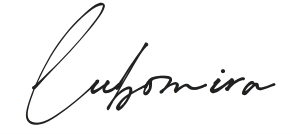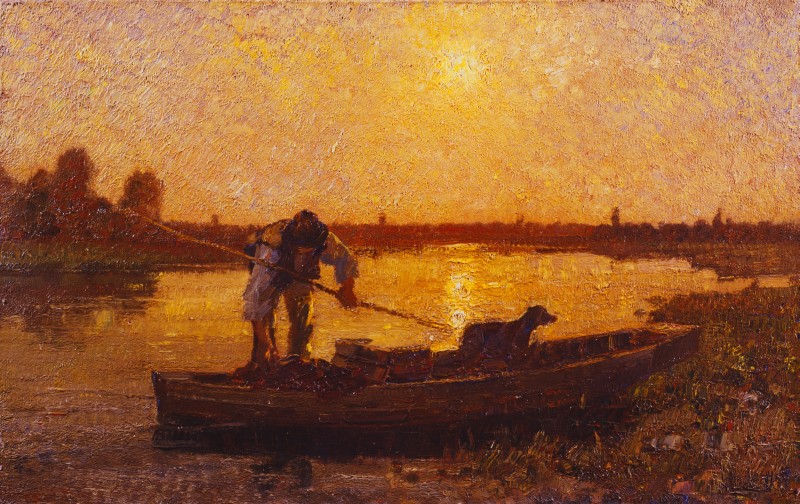Last time we talked about lust, and today let us talk about the other little monster speaking in our ear sometimes: pride. How do we overcome pride, and what is its real unmet need that we are actually seeking to fulfill in order to create more inner harmony and connection?
For those of you who haven’t read the previous discussions, I’ve written on
The Inner Fire of Transformation
When we hear words such as pride, lust and greed, we usually associate them with the seven sins, thereby potentially attaching shame, guilt, dogmatic beliefs and judgment onto them; so let’s first start with understanding what the word sin really means. And the reason we’ll begin with this is because one of my intentions for my articles is to offer various perspectives for the purpose of expanding our perceptions – so that we understand the essence of things, rather than immediately dismiss or run away from “words” that we think are outdated thereby missing an opportunity for a deepening.
The true meaning of sin comes from the ancient Greek word ἁμαρτία meaning literally “to miss the mark” as in aiming for a vision or target and falling short. Our mark is usually one that marries clarity of mind, purity of heart and aligned with sincerity of action, so that we are aligned to our true intention, responding to the real internal need. But somehow, somewhere along the way, visions get foggy or waver and paths get shifted.
Sometimes it is because we didn’t have the tools needed, whether tools internal or external; sometimes it is because we didn’t have the awareness, understanding or maturity, or we simply didn’t pay attention to what we needed to. For whatever reason, we missed the mark. Perhaps the mark was love and emotional connection, but we fell into lust. Perhaps the mark was fairness, but we fell into greed. Perhaps the mark was courage, but we fell into anger or pride.
In the monasteries, monks spend part of their day in what is called obedience, which is essentially doing service to take care of the tasks of the monastery and the land etc. And these tasks are purposeful and unique to each monk depending on their own spiritual path. If a monk struggles with gluttony, they may work most days in the kitchen yet not be allowed to eat or taste while cooking. And if a monk is struggling with pride in their life, they are usually encouraged to clean the toilets. These tasks are meant to align them in deeper inner harmony and inspire self autonomy.
In our every day modern life, we too can all almost awaken our inner monk and learn things about ourselves from the opportunities that life presents us. For example, if you are stuck in traffic, perhaps you can learn about being more patient and less judgmental, and just be more self aware.
Sins aren’t things we should view as imprisonment or feel ashamed of them, because we are human and it is life, and we all miss some mark sometimes. But it is important to know ourselves and be aware of our reactions and temptations, and thereby develop self-autonomy, otherwise fears and doubts and low self-esteem will take a hold on us and drive us.
We can view sin, i.e. moments of anger, greed, pride etc., as a fire to be lit from within us – it is a fire that brings the beauty of the matter. Fire is an alchemist and is powerful. It can be used to burn – burn the whole house and ourselves – or it can be used to warm us and transform us in meaningful and very beautiful ways.
The lower we perceives ourselves, the more things we’ll want to do to wash away that inner shame or perceived sinfulness. So in a way, while we may think these sins are keeping us imprisoned or punished, they are actually an opportunity for that inner fire to inspire us to grow if we choose to. If we can allow the humility that arises within us from that “sin”, we can essentially allow these flames of insight and new found wisdom turn us into something beautiful.
And for each sin there is a corresponding virtue, to show us a light and a healing pathway towards inner balance and harmony; and to also show us that there is nothing to feel badly about, all in life has another side yet balance is most important, and for all in life there is always a way forward.
How to Overcome Pride, and Connect to Love
When most people talk about our topic today, they’ll usually say “how can we fight pride”. And the first thing I’d like you to do is consider not using this word “fight” – because we can’t fight our own selves, but we should rather understand ourselves and soothe our inner world into more harmony, compassion and truth. So let us first understand how and why pride arises within us.
Sometimes, and especially when we’ve endured a lot of people crossing our boundaries and disrespecting us, or ignoring our needs, we can stick our heels in the ground, with pride and stubbornness, because we’ve had enough of it and it is justified. Sometimes pride is well earned and aligned to what we’ve truly accomplished. Other times however, over-inflated pride becomes our prison and our own borders to more growth and happiness in our life.
Over-inflated pride that is ego–driven is a great limit of self. It manifests as arrogance, and is rooted in ignorance, lack of substance and real knowledge, and is also often a sign of lack of true self worth and self esteem. Just like a balloon, the prideful and arrogant are empty and just full of air, floating alone in the sky, clouded in delusions or illusions of self importance, flying farther and farther away from any kind of fulfillment and meaningful connection.
I’ve often seen people walk away from love and potential happiness just because of pride. Pride can blind us from seeing things clearly, and from admitting our own mistakes. It’s no easy task accepting our mistakes and weaknesses, and apologizing when we’ve done something we shouldn’t have, which also refers to having self-compassion. Pride can also limit us when we hesitate to reach out, or ask for help. Have faith in the truth that you are never alone.
In its essence, pride is a form of separation. And unfortunately, sometimes we may separate ourselves from what we really need. Perhaps we need financial support but then when a loved one offers us help we reject it. Perhaps we need emotional support, or a hug or a shoulder to cry on or we just need to share something that burdens us or has hurt us, and yet we don’t reach out because we don’t want to seem weak or we don’t want to burden someone with our problems. We all need help sometimes, we all need love and support.
Once a woman told her sweet little daughter to go ask their neighbour for some kitchen salt. The daughter wondered, “But why, mom, we have salt here?” “Because,” the woman gently replied, “she has plenty of salt too and it’d be no problem for her to spare it, but she is going through a hard time, and I want her to feel welcome to come and ask for help whenever she needs it – and this will open the door for our connection, so that she hopefully feels at ease asking us for support.”
We all hesitate to ask sometimes, but we should also remember to open our palms and receive the help we are offered, because it is both a gift given to us and a gift we gift them as well when we accept it. Our hearts open when we help another, and we all know how much we might worry if someone doesn’t accept our help when we know they need it. Receiving is just as important as giving, and humbleness is the love that holds the hands of both.
Each sin traditionally corresponds to a virtue, which acts as its remedy and healing power, and for pride it is humility. Humility is one of our greatest virtues, as it essentially removes all obstacles to love and faith – it becomes our bridge to love. So while pride closes a door in front of us, and puts us on imaginary thrones though we’ll be there alone, humility opens it and offers us a bridge to connection – connection to both self and others.
We live in a world where the focus often is on do, do, do and know, know, know. In our rushing, fast paced, distracted and busy driven culture, we are obsessed with gaining information and then are quick to share it – but we often miss the essence and the wisdom. We gain knowledge from memes, watch a few Youtube videos, and suddenly we crown ourselves as gurus and specialists. That’s not what true wisdom is. In fact, the more you truly learn the more you’ll understand you’ll never know it all – because we are human beings limited in understanding and conditioned to our human minds and perceptions.
We were never meant to know it all anyway. The humility of this deserves to be treasured. When we leave space for the mysteries of life, that’s when God breathes, and we do too; and that’s when life can surprise us in wonderful ways. There are certain things we’ll never ever know – both in text and in life. There are even parts of ourselves within, wild and unknown, and in our lovers, that we’ll never know. No matter how many years we’ve lived together under the same roof, we’ll never know the entirety of another person – and when we approach each other with this humility, with this openness and willingness to learn and re-learn and re-explore one another and our inner worlds, we’ll live in more harmony, deeper intimacy and loving understanding.
So what is humility really?
The term humility comes from the Latin word humilitas, a noun related to the adjective humilis, which may be translated as “humble”, but also as “grounded”, “from the earth”, or “low”, since it derives in turns from humus (earth).
This shows us that humility is actually a path towards groundedness and a sense of proportion – which puts us in reverence, and in approaching life through the eyes of the beginner’s mind i.e. through openness to learn from one another and connect on a deeper level.
Humility becomes the doorways towards love, towards our willingness to learn and grow, towards genuineness, and towards reverence. When we are proud and inflexible, we are closed off to truly love and to be loved.
As already mentioned, in the monasteries monks would often do tasks such as cleaning the toilets to transform pride within themselves. When we devote to and shift our focus towards being of service to another, or to do our daily mundane tasks, we ground ourselves and fall into the inter-connection that all of life is, within and without.
So whether it is charity work, volunteering at an animal shelter, doing your laundry and cleaning the toilets, being of service and putting ourselves in the right proportions grounds us. No human should ever be too tall not to kneel when another needs help. Sometimes our side of things can seem so high and inflated, but perhaps we are not seeing the other perspective. Perhaps there is more to learn, and someone else is struggling more than we are; perhaps we can help and be purposeful to someone else.
Within the context of relationships, sometimes we put people in specific roles. This friend is “this”, that friend is “that”, you do this each time so that’s all you are, etc. By humbling ourselves that human nature is much more complex and richly nuanced, we will begin to see the gift of people when they just show up as they are in our world. And if they are a-holes, well that’s fine, we’ll limit contact or just cut them out – no need to perpetuate cycles and unhealthy dynamics.
And yet sometimes, people do have more layers to them and we should all allow ourselves, and others also, the freedom to show us that change is possible, and that sometimes people learn through their mistakes, becoming more considerate, aware and compassionate. We all make mistakes sometimes, because we are only human; but what matters is to learn from them and not repeat them, as we shouldn’t take advantage of someone’s kindness and grace when they forgive us.
Self-reflection questions:
Where has pride stopped me from following my heart; from doing something that I wanted to do but then convinced myself that I didn’t (just because I was too proud)?
Where do I have too much pride?
What mistake or weakness am I hesitant to admit?
Where does faith help me to open up to someone?
How can I be more vulnerable towards those who have shown to me that I can trust them?

For more of my writings, browse through my Art of Love.
If you value what I do, you can support me and my publication by sharing my articles and poems, buy my books or donate some magic coins in my hat on Paypal. If you would like to work with me, visit my Offerings.
Your support means so much to me! Thank you wholeheartedly!
Cover art by Beppe Ciardi, 1925, via Wikimedia Commons.





